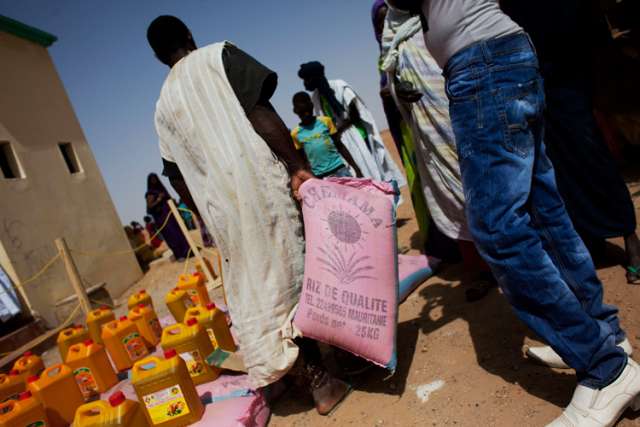A poll conducted on behalf of the Canadian Foodgrains Bank shows almost two-thirds of Canadians think we should do something about that.
The Ipsos-Reid poll conducted in May but released in October found 61 per cent of Canadians believe Canada should do more to help farmers in the developing world. More than half, 52 per cent, said they would donate money to help make it happen.
While that may be the answer when pollsters call, most of us aren’t actually thinking about world hunger and agriculture, said Foodgrains spokesperson John Longhurst. “There are really only a few major times when the needs of the developing world make it into the big media in Canada,” Longhurst said. “One would be with a sudden disaster, like an earthquake or a tsunami. But the other time will be when famine strikes — when there are images of skeletal people in great distress.”
Foodgrains and its Catholic partner, the Canadian Catholic Organization for Development and Peace, are trying to get citizens and the government to start thinking about food, agriculture and the livelihoods of poor people before disaster strikes. Development and Peace is trying to get that message across with its newly launched Sow Much Love campaign, which tries to educate parishes about the role of small-scale farming in poor countries. Up to 80 per cent of what people eat in the countries where Development and Peace has partners is grown by small and usually poor farmers.
Getting seeds, tools, training and market intelligence to farmers can do more to lift people and countries out of poverty than any other kind of investment, reports The World Bank. By concentrating on agriculture, Ghana in West Africa reduced its rural poverty by 24 per cent over 15 years.
But most Canadians don’t know about the successes, according to the Ipsos-Reid survey. Forty-two per cent said they didn’t think there has been any improvement in global hunger and another 39 per cent said they thought it was actually getting worse.
In fact, “there are actually fewer hungry people in the world today than 20 years ago,” said Longhurst.
Sixty-six per cent said they thought multinational corporations should play a role in ending world hunger, but 43 per cent thought the role multinationals actually have in developing countries is detrimental while only 35 per cent thought they played a beneficial role. Whatever the role of multinationals, Canadians think poor countries need both big and small farms, both traditional and scientific farming techniques.
“The imperative being promoted most often when we talk about development and hunger is that there is going to be nine billion people by 2015, so we’ve got to grow more food,” said Longhurst.


